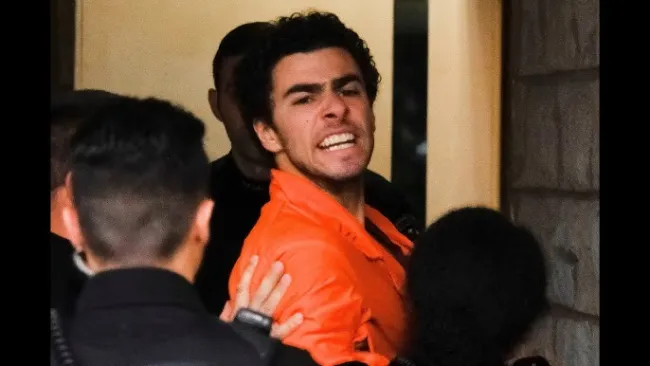Luigi Mangione: The Privileged Shooter – When Privilege Meets Rage Against Corporate America
In a shocking turn of events, Luigi Mangione, a man with a privileged background, stands accused of the second-degree murder of UnitedHealthcare CEO Brian Thompson in Manhattan. As the case unfolds, it raises provocative questions about corporate America, societal frustrations, and the potential for violence as a form of protest.
The Crime:
On December 4, Brian Thompson, a symbol of corporate prowess, was gunned down in broad daylight as he approached a Manhattan hotel hosting his company’s investors’ conference. The accused, Luigi Mangione, was later apprehended in Pennsylvania, setting off a legal saga that has captured national attention.
The Accused:
Luigi Mangione, a former valedictorian and Ivy League graduate, appears to have turned his back on his privileged upbringing. His arrest and the subsequent discovery of a “claim of responsibility” suggest a motives rooted in anger against the health insurance industry and corporate greed. The irony of his background adds layers to this narrative, prompting questions about the triggers that led him down this path.
The Evidence:
Mangione faces mounting evidence, including a 3D-printed gun matching shell casings at the crime scene and fingerprints on items near the scene. However, with Karen Friedman Agnifilo, a seasoned former Manhattan prosecutor, now defending him, the legal battle promises to be intense.
Public Reaction and Online Support:
Despite the gravity of the charges, Mangione has garnered sympathy online, with some even offering to fund his legal defense. This support reflects broader frustrations with the healthcare system and corporate practices, raising concerns about the potential for inspiring similar acts.
Societal Implications:
This incident mirrors deeper societal frustrations, highlighting the need to address the root causes of anger towards corporate America. The NYPD intelligence report warning of increased threats to executives underscores the seriousness of the situation.
The Legal Proceedings:
As the case progresses, extradition issues and potential defense strategies loom large. The involvement of the FBI and the San Francisco Police Department adds complexity to the proceedings, while UnitedHealthcare’s confirmation that Mangione wasn’t their customer complicates the narrative further.
Conclusion:
The story of Luigi Mangione is more than a criminal case; it is a provocative reflection on corporate responsibility and public perception of CEOs. As the trial unfolds, it serves as a reminder of the tension between justice and the societal need to address systemic issues. The potential consequences of such acts underscore the importance of dialogue and reform, lest we see more symbolic strikes against the pillars of corporate America.
Final Thoughts:
In a world where frustration with corporate greed is palpable, the case of Luigi Mangione serves as a chilling reminder of the potential for violence as a form of protest. As we await the outcome, it is imperative to consider the broader implications and the need for meaningful change.
